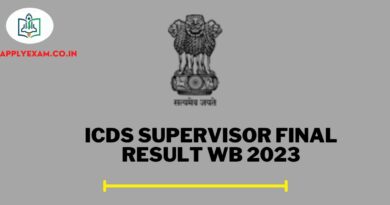Health Worker
Health Worker
The use of public health workers has been identified as a single strategy to address the growing shortage
of health workers, especially in low-income countries. Using community members to do something basic
the health services in the communities they come from are a concept that has been around for 50 years.
There have been countless incidents around the world with programs ranging from major, national to small, community-based programs.
This review paper reviews questions about the feasibility and effectiveness of public health
personnel programs. Approved by the World Health Organization as a World Track
2006 Health Report: Co-operation in Health, identified as the most important research study
to effectively involve community health workers. This review aims to test the current state of affairs
evidence. Create a desktop update, which is much wider, as seen in the article, which draws
together and examine the evidence as it can be found in published and selected “gray” books from
in the late 1970s.
The umbrella term “community health worker” (CHW) includes different community health workers
elected, trained and working in the communities from which they come. General about profile
of public health workers around the world are difficult. Although there are broad trends, CHWs can
be it men or women, young or old, educated or uneducated. Even more important is to admit that
The definition of CHWs should be responsive to the customs and traditions of the local community and customs in order to ensure the community
acceptance and ownership.
The roles and responsibilities of community health workers are very different in their history,
domestically and internationally and in all systems. While in some cases CHWs do a lot of variety
various activities which can be preventive, therapeutic and / or developmental, in some cases CHWs are appointed
with direct intervention.
Although difficult, given the scope of the title and the diversity of the informative literature
review, generalization of information about CHW programs or answering the question of what
make a good plan for CHW, rather than agreeing in writing about the number of issues:
First, CHWs can make a significant contribution to community development and, in particular, can
improving access to and provision of basic health care services to communities. There is strong evidence that
CHWs can take actions that lead to better health outcomes, especially, but not limited to,
the child health sector. However, while they may use effective interventions, they do not
continuously provide services that may have a significant impact on health, as well as the quality of services they provide
provision sometimes for the poor.

Health Worker
Second, for CHWs to contribute effectively, they must be carefully selected,
properly trained and – most importantly – adequately and consistently supported. Great CHW
systems that require significant upgrades to support training, management, supervision and planning.
Third, CHW programs are therefore not a cure for poor health programs or a cheaper option
to provide access to health care for the needy. Many programs have failed in the past
due to unreasonable expectations, incorrect planning and underestimation of effort and input required
to make them work. This has unnecessarily undermined and undermined the integrity of the CHW concept.
Fourth, by its very nature CHW programs are vulnerable unless they are operated, managed and robust
focused on the communities themselves. If not, they are geographical as well
the boundaries of the organization of the formal health system, exposed to the winds of policy change outside of
in order to persuade and articulate their purpose, and thus they tend to be weak and unstable. However, i
The concept of community ownership and participation is often misinterpreted and misunderstood as a result of programs initiated by the institution. Evidence suggests that CHW programs are effective
unite communities but struggle when given the task of mobilizing and motivating
communities

Health Worker
Examples of successful programs can therefore be obtained after efforts to mobilize the community,
as part of a major political revolution, such as in Brazil or China; or by location
incentives, which are usually promoted by non-governmental, community-based or religious organizations. Ku
In many cases the systems retain a lifetime of merging effort and wither or fall out completely
as the motivation for motivation is lost. Rhythms and the power of public participation lies
apart from this review, however it is important to better understand and discuss the future of CHW
programs.
The biggest challenge lies in establishing and capturing public participation statistics. So far, the biggest one
and the most successful program in this regard is the Brazilian Family Health Program, which has
integrate CHWs into its health services and community health committees set up as part
municipal health services to maintain public participation. This means that public participation does not
be otherwise, but an integral part of the government’s commitment to health care delivery.
Fifth, the question of whether CHWs should be volunteers or paid in some way remains
antagonist. There is almost no evidence that volunteer work can be kept for long: e.g.
law, public health workers are poor and expect and need a salary. Although for many
programs that they are expected to spend only a little time on in their health-related activities, away
time for other nourishing activities, the need of the community often requires full functioning. I
the fact is that CHWs as a law and by nature provide services in areas where it is legal
health services are inaccessible and people are poor. This also makes the social issue more difficult
financially, which is rarely successful unless it is invested in institutions, such as China. Most of the evidence shows
failure of public funding programs, leading to high school dropout rates and the last fall
programs.

Given the current pressures on health systems and their inability to respond adequately, they are present
The evidence strongly suggests that especially in poor countries, CHW programs are not cheap
or easy, but always a good investment, as some really don’t care at all for the poor who live in it
places near the place. Although there is much to learn, there is much we can do about it
systems work better: proper selection, further education, engagement and reorganization
health care workers and courses, development guidance and support are needs that can be negotiated.
These require political leadership and the provision of strong and consistent resources. We need to learn
from the examples of large programs that are successful in this, especially the provision of length
proof of what works and what doesn’t. This is currently a huge information gap.
CHW programs have been hailed as a cure and have been described as fraudulent in the past. Sensible vision
revealed today, as happened in the late 1980’s, that “yet, with the will of the government, governments can receive more.
flexible approaches to organizing CHW programs within the context of the health sector as a whole,
rather than a separate function. Weaknesses in training, job allocation and supervision should be
mentioned immediately. CHWs represent an important health service with its ability to provide once
Extending the quality of health care to the uninitiated must be fully addressed ”(Gilson et al.,
1989).

Health Worker
The authors would like to thank the World Health Organization for providing them with this important resource
research and Department of International Development, United Kingdom of Great Britain
and Northern Ireland, by providing financial support.
They would also like to thank Carmen Dolea, the WHO Department of Health Minister, who said
aligned with the research and writing process, along with Irwin Friedman, a former SEED Trust and now
Research Director of the Health Systems Trust, who co-authored a previous study of the public
African health workers and their understanding and their highly valued expertise, collectively
on the front page which provided the basis for this review.





